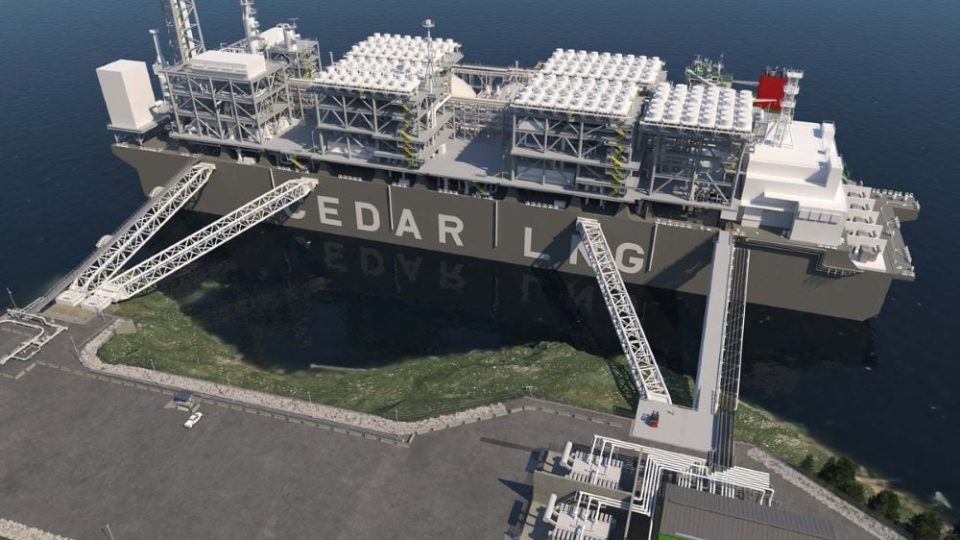Canada’s emerging liquefied natural gas (LNG) industry has an opportunity to become a key supplier for energy-hungry countries in Asia and beyond following the U.S. pause on new or pending LNG export approvals, industry watchers say.
With much of the world looking for alternatives to Russian natural gas following its invasion of Ukraine in 2022, the U.S. emerged as the number one global exporter of LNG. According to the International Energy Agency, the U.S. accounted for 80 per cent of additional supply in 2023.
But with the U.S. putting its LNG industry on pause, the timing could be good for Canada.
The recent completion of the Coastal Gaslink pipeline along with progress on Canada’s first LNG export projects are bringing Canada closer to becoming a key global supplier.
An opportunity to showcase clean LNG
As the LNG Canada terminal moves into its final stages of construction, Kitimat, B.C. will become the gateway for exports from Canada.
For First Nations LNG Alliance CEO Karen Ogen, this means Canada, which has so far missed the global LNG boom, will have another chance at becoming a player.
“I think this is an opportunity for us to showcase our clean LNG and I think we can do it through the various projects [underway].” Ogen said.
Those projects, which include LNG Canada and Woodfibre LNG that are under construction, along with the proposed Cedar LNG and Ksi Lisims LNG terminals, will operate with an emissions intensity less than half that of the global average.
Cedar LNG, headed by the Haisla First Nation, will operate at less than one-third of the global average.
Ogen said these projects will create significant prosperity, not just for Canada and B.C. but for Indigenous peoples as well.
“It’ll help boost our Canadian economy, it’ll help B.C.’s economy, and most specifically it will help the Indigenous people and our economy. If we’re the most disadvantaged population living in poverty, then this should help our people get out of poverty.” she said.
“Everyone wins if Canada can get into the game.”
Reduced LNG supply could increase reliance on coal
Racim Gribaa, founder and president of Global LNG Consulting Inc., said a potential decrease in LNG exports to international markets, particularly in Asia, may heighten dependence on coal, thereby escalating global emissions.
“If [importers] can’t get U.S. LNG, they would be left with very few viable alternatives including coal. And if they burn coal, that’s twice as much emissions. Coal is cheaper and reliable, but emits twice as much carbon. Countries in Asia such as China, with over 1,140 operational coal plants, are building new coal plants every week both in Asia and abroad,” Gribaa said.
Canada has a significant geographical advantage to supply LNG to Asia that can reduce associated transportation emissions by up to 60 per cent, he said.
Export terminals in B.C. are about half the distance to Asia compared to terminals on the U.S. Gulf Coast.
“The distance between Canada and the key market is a huge advantage, where we are the same distance to Asia as Australia,” Gribaa said.
“Monetizing natural gas in Canada through LNG exports not only will help reduce global emissions but it also will enhance health and economic well being of Canadians future generations.”
Establishing Canada’s LNG credibility
The starting point will be LNG Canada in 2025, which will allow Canada to export LNG on international scale, Gribaa said. It will help establish Canada’s credibility as a supplier, just as the U.S. pauses new development.
Once that credibility is established, Canadian LNG could become a bigger player on the global scale.
“Canada’s abundant natural gas reserves empower the nation to produce and export decades of dependable, cost-effective, and environmentally-friendly LNG to global markets, leveraging direct marine routes unaffected by constraints like the Panama or Suez Canals, the Strait of Hormuz, or having to navigate around the Cape of Good Hope,” Gribaa said.
“Canada stands poised to secure market share for years to come, irrespective of whether the U.S. temporarily halts or reconsiders its involvement.”
The unaltered reproduction of this content is free of charge with attribution to Canadian Energy Centre Ltd.
